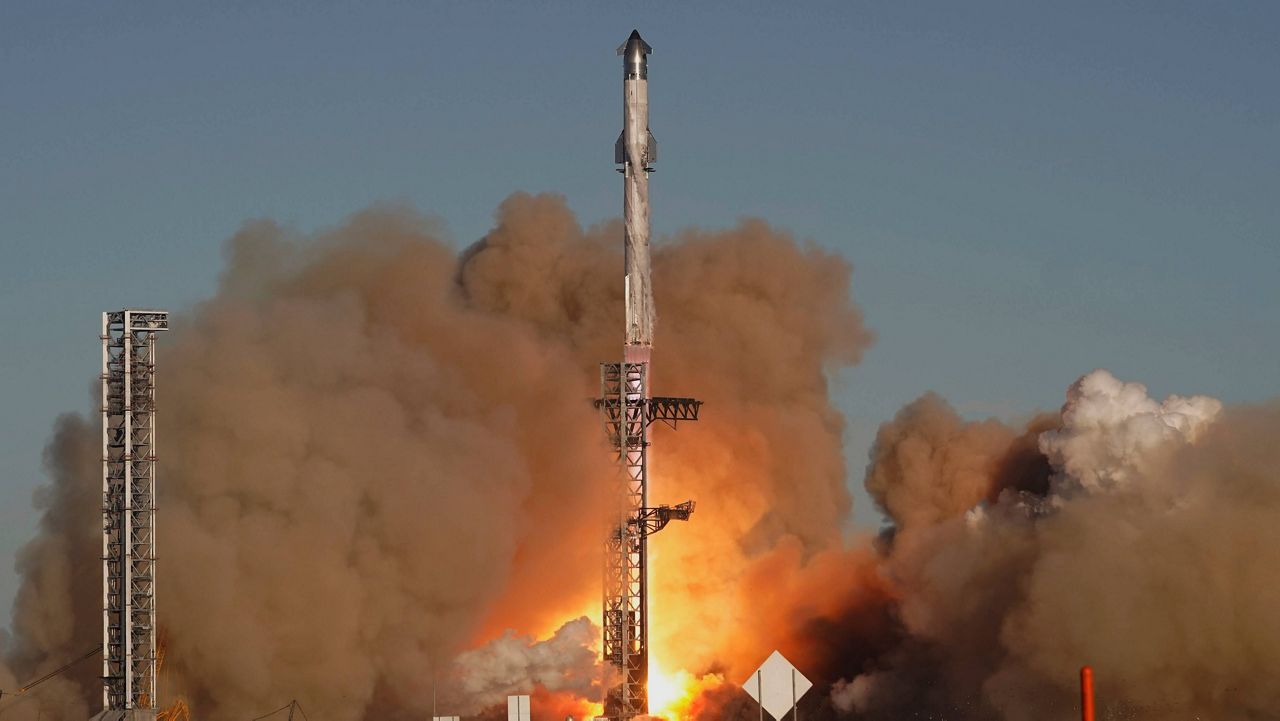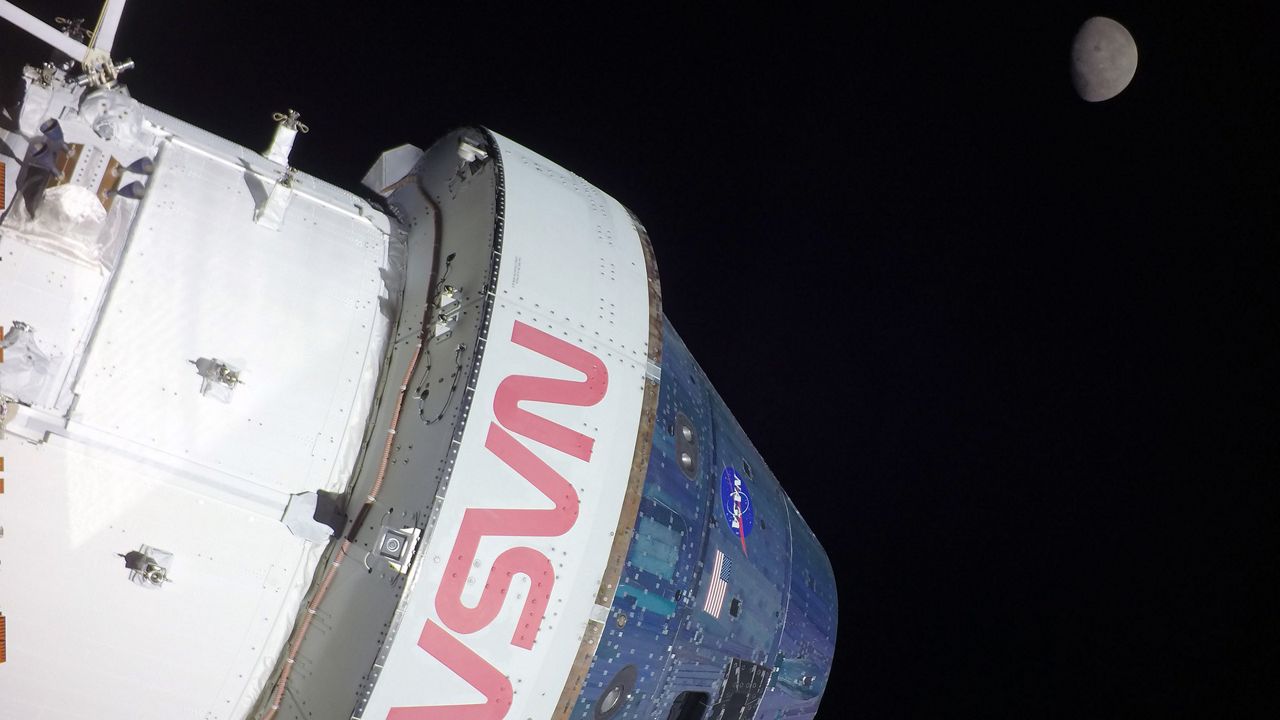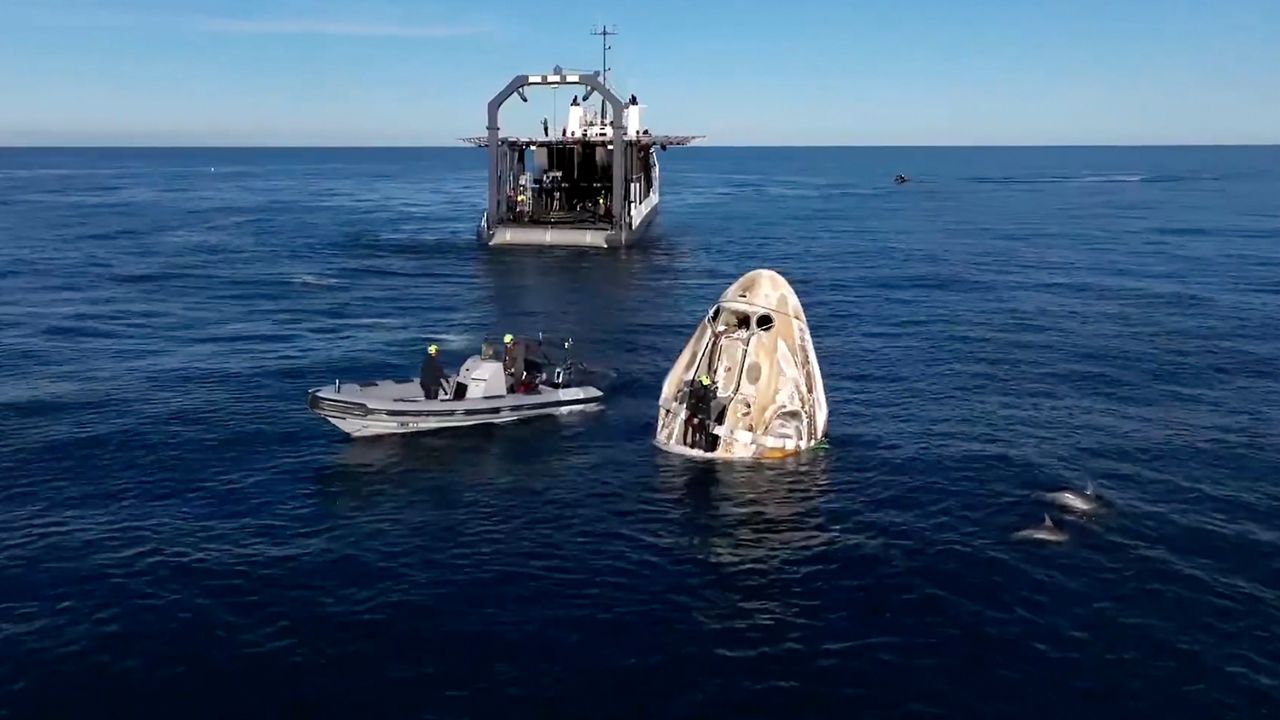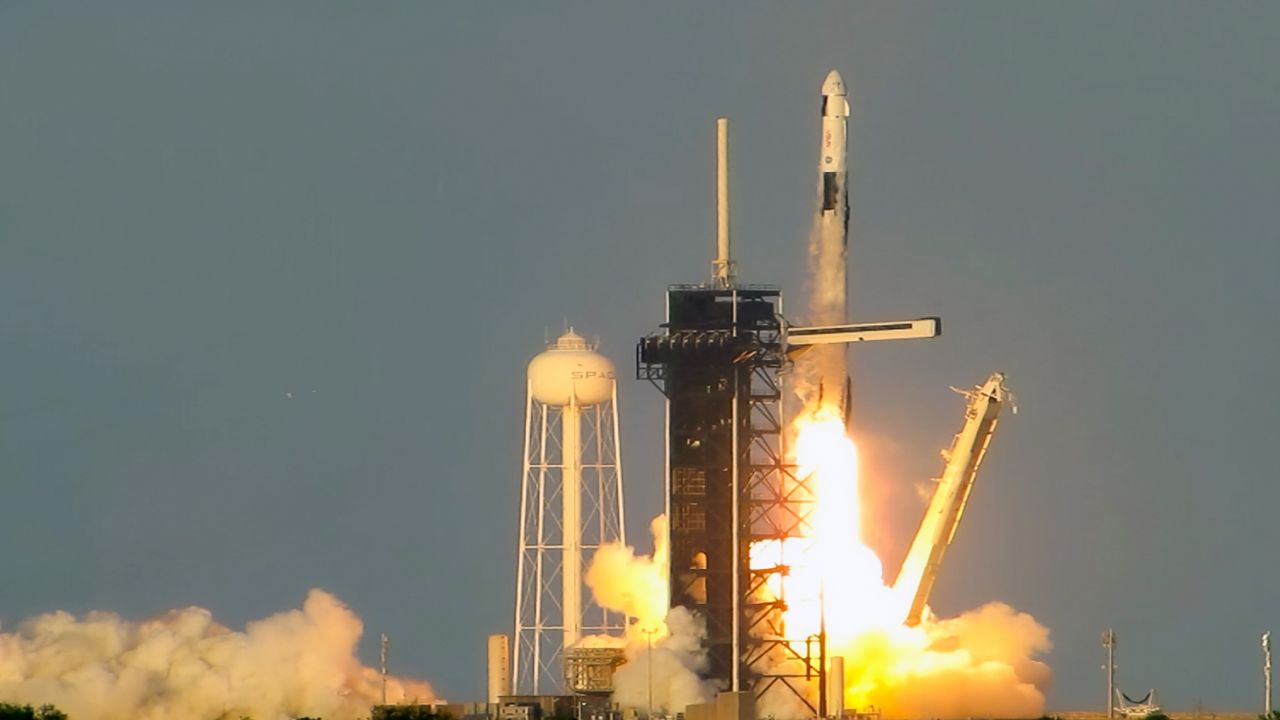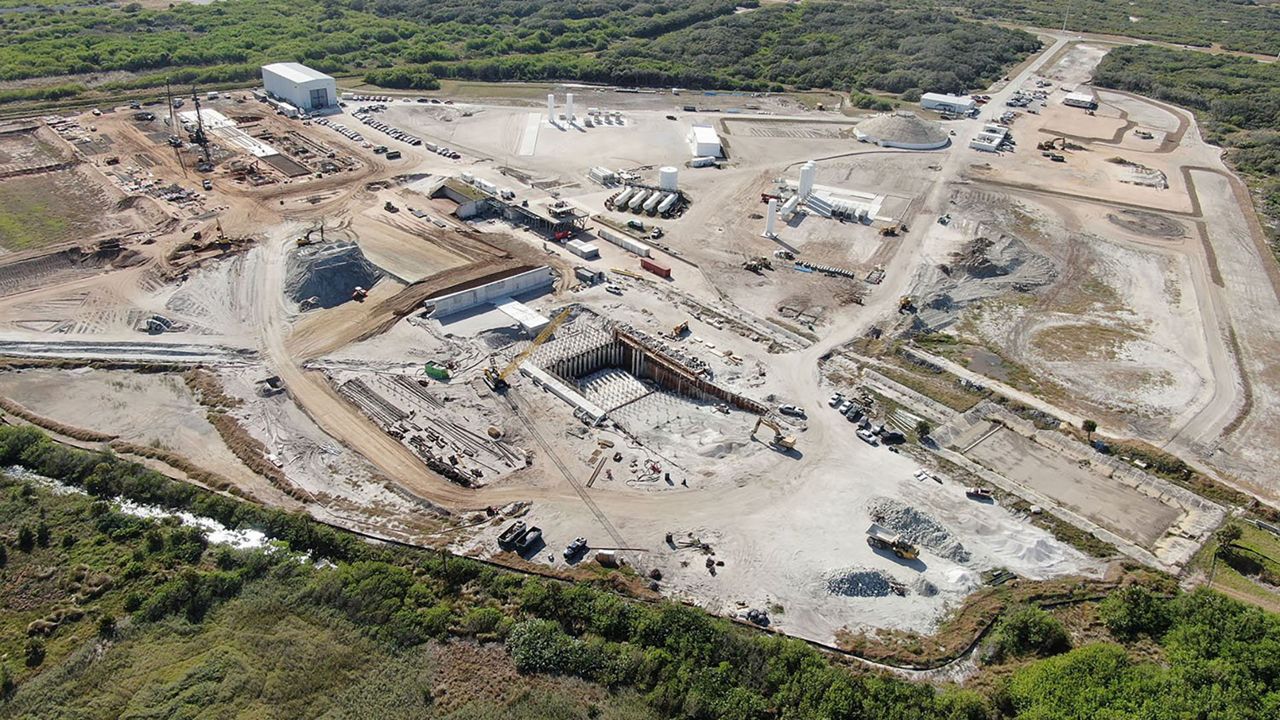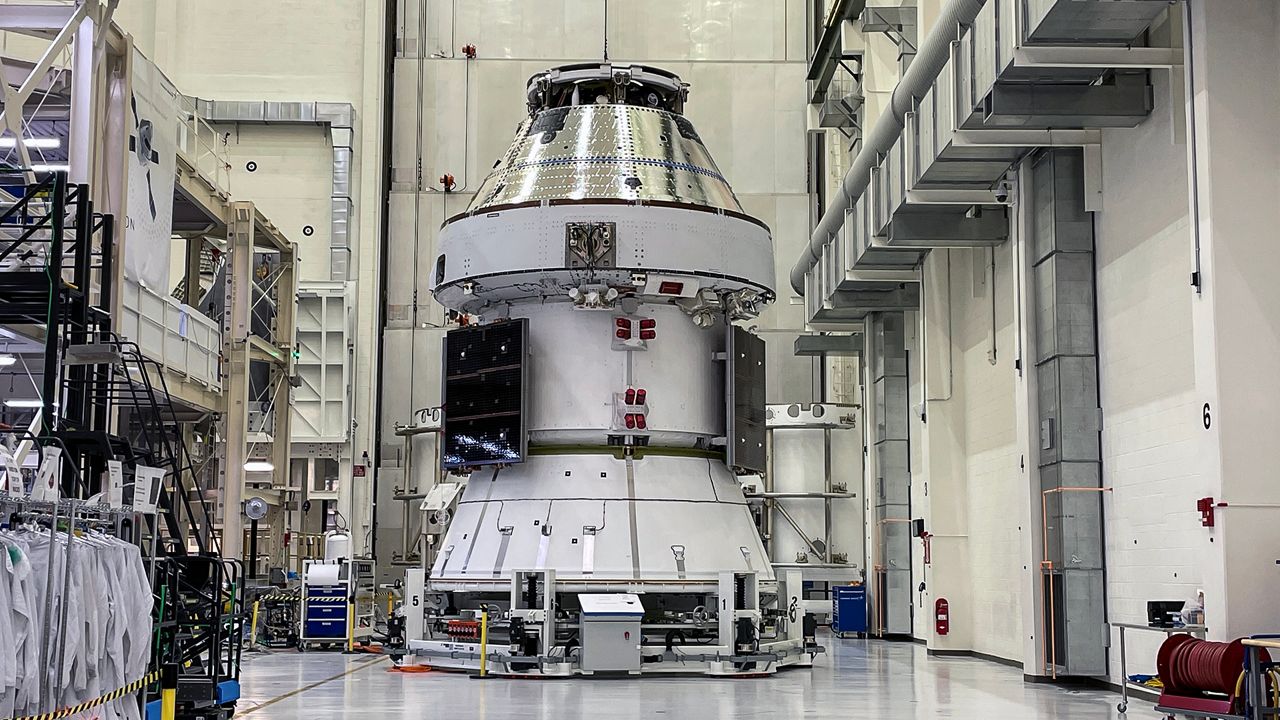CAPE CANAVERAL SPACE FORCE STATION — The Federal Aviation Administration has opened two mishap investigations for SpaceX and Blue Origin after both companies’ test of their rockets Starship and New Glenn, respectively, ended in partial failures.
What You Need To Know
- The FAA will investigate the incidents before allowing the two companies to launch their rockets again
On Friday, the FAA issued a mishap investigation against SpaceX after the upper stage of the Starship lost communications and then blew up during its seventh test flight on Thursday minutes after its launch from the company’s Starbase facility in Boca Chica, Texas.
Videos of the debris of Starship was seen all over social media, with SpaceX founder Elon Musk posting on X (formerly known as Twitter which he owns) the ship’s obliteration as it returned to Earth.
Success is uncertain, but entertainment is guaranteed! ✨
— Elon Musk (@elonmusk) January 16, 2025
pic.twitter.com/nn3PiP8XwG
The destruction in the sky was seen over Turks and Caicos and while the FAA stated there have been no reports of people being injured, it is confirming if property damage happened.
The FAA activated a debris response area and redirected aircrafts’ flight path.
SpaceX shared that a possible fire in the aft section of the ship was the cause of its “rapid unscheduled disassembly.”
"Following stage separation, the Starship upper stage successfully lit all six Raptor engines and performed its ascent burn to space. Prior to the burn’s completion, telemetry was lost with the vehicle after approximately eight and a half minutes of flight. Initial data indicates a fire developed in the aft section of the ship, leading to a rapid unscheduled disassembly," SpaceX stated.
On Thursday night, Musk posted that, “Preliminary indication is that we had an oxygen/fuel leak in the cavity above the ship engine firewall that was large enough to build pressure in excess of the vent capacity.”
The company added that SpaceX’s team is going over the data to find the root cause of the accident, which did not cause any injuries.
This means the FAA has grounded Starship until SpaceX can correct an issue and prove the next spacecraft is safe.
“The FAA will be involved in every step of the SpaceX-led mishap investigation process and must approve SpaceX’s final report, including any corrective actions. A return to flight is based on the FAA determining that any system, process, or procedure related to the mishap does not affect public safety,” the FAA stated.
Before the FAA issued the grounding, SpaceX already stated it would be conducting an investigation.
“We will conduct a thorough investigation, in coordination with the FAA, and implement corrective actions to make improvements on future Starship flight tests,” it stated.
Musk also posted that he did not think there was "Nothing so far suggests pushing next launch past next month."
The first-stage booster, the Super Heavy rocket, was successfully caught by the chopsticks of the launch tower.
During Starship’s first launch attempt in April 2023, it exploded and the FAA issued a string of conditions before the California-based company could try again, which included 63 corrective actions.
New Glenn is also grounded
On Thursday, the FAA issued a mishap investigation into Blue Origin’s maiden rocket launch of its New Glenn rocket.
Early Thursday morning, the New Glenn rocket took off from Launch Pad 36 at Cape Canaveral Space Force Station.
While the launch of the rocket was successful, the first attempt of landing the first-stage booster on the Blue Origin’s cargo ship was not.
While there was no public injuries or property damage, the FAA is requiring the company to perform a mishap investigation and using the same wording it issued to SpaceX, “A return to flight is based on the FAA determining that any system, process, or procedure related to the mishap does not affect public safety.”
A Blue Origin spokesperson stated that the company is working with the FAA.
"We’re working closely with the FAA and will submit initial findings within 24 hours. Our goal is to fly New Glenn again this spring. Our mission was a success – our lone objective was to reach orbit while noting that landing our booster, 'So You’re Telling Me There’s a Chance,' hundreds of miles offshore would be a bonus," the company stated in an email to Spectrum News.
Spectrum News also reached out to SpaceX for a comment and is awaiting a reply.




